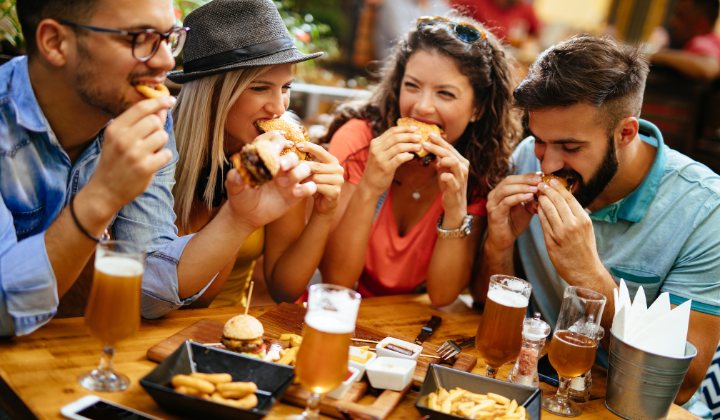
– Manuscript –
Many Americans make monthly payments, called subscription fees, to receive services for movies, music, and even household goods. Now some restaurants are hoping that they want to do the same for their favorite meals.
Large companies like Panera and P.F. Chang’s and small neighborhood restaurants are increasingly experimenting with the subscription model to bring in diners. Some offer unlimited drinks or free delivery for a monthly fee; others will bring out your favorite appetizer each time you visit.
They are following a trend. The average American had 6.7 subscriptions in 2022, up from 4.2 in 2019, says Rocket Money, a personal finance website.
Gravitas is a costly restaurant in Washington, D.C. For $130 a month, Gravitas Supper Club subscribers get a three-course takeout meal for two people. The restaurant provided takeout during the pandemic, but demand dropped once its dining room reopened to the public. The Supper Club — which serves about 60 diners per month — keeps the service going.
Matt Baker is the chef, or top cook, at Gravitas. He said, “This is just another way for customers to provide a level of support and joy and love for our offerings.”
The nationwide restaurant group P.F. Chang’s also saw a chance to increase to-go orders with its subscription plan. Last September, it launched a member service for $6.99 a month which includes free delivery.
St. Louis-based Panera launched a subscription program in early 2020. It offered unlimited coffee and tea for $8.99 per month. Customers started coming in several times a week, and about one-third of the time they bought food. Last year, Panera expanded its subscription plan. Now, members can pay $11.99 per month for unlimited hot and cold drinks.
Eduardo Luz of Panera said members now make up 25 percent of the group’s transactions. “It’s a huge traffic driver,” Luz said.
El Lopo, a San Francisco bar, has 26 members in its Take-Care-Of-Me Club. They pay either $89 per month for $100 in dining credits or $175 per month for $200 in credits. When members come in, El Lopo starts bringing out their favorite dishes. On each visit, they can give a free drink to anyone in the bar.
El Lopo owner Daniel Azarkman started the club in March 2021 to bring people back after the pandemic. Now, he is hearing from restaurants all over the country that are interested in starting similar programs. “What it really achieves is getting them in more often,” he said.
Rick Camac leads industry relations at the Institute of Culinary Education in New York City. He expects many more restaurants to offer subscriptions in the coming years. Customers are used to subscriptions and the monthly income helps restaurants.
Not all restaurants have had success
But not all subscription programs have had success. In 2021, On the Border Mexican Grill introduced its Queso Club. The plan offered free cheese dip for a year for $1, but the program stopped taking new subscribers a year later.
Edithann Ramey, On the Border’s chief marketing officer, said more than 150,000 people signed up for the Queso Club. Members visited seven times more often than the average diner. But the group was not making enough money to cover the cost of the dip. The company expects to raise the price of the service and reintroduce it later.
Other restaurants have ended subscriptions, saying they are just too busy providing food.
In late 2020, SheWolf, a high-priced Italian restaurant in Detroit, started sending subscribers a box of pasta, sauces and other foods for $80 per month. But when its dining room fully reopened six months later, it was too much work to put together hundreds of boxes. The restaurant now sends Italian wines to about 80 subscribers who pay $60 or more each month.
The idea of subscriptions has spread to other countries.
Pret A Manger launched its coffee subscription in Britain in 2020. As of November, it was being used 1.2 million times a week and the group plans to introduce subscriptions for its businesses in France and the U.S.
Words in This Story
diner –n. a person who eats at a restaurant
appetizer –n. a small dish of food that is served before the main part of the meal
trend –n. the direction of change for an activity or behavior of people
three-course –adj. describes a meal in which three main parts are served
customer –n. anyone who pays for goods or services
to-go –adj. describing a (food) product that is meant to be picked up at a story and taken home to be used
achieve –v. to reach a goal through work
*This article has been edited and reprinted from VOA Learning English with permission from Voice of America (VOA) for use in English language materials.
